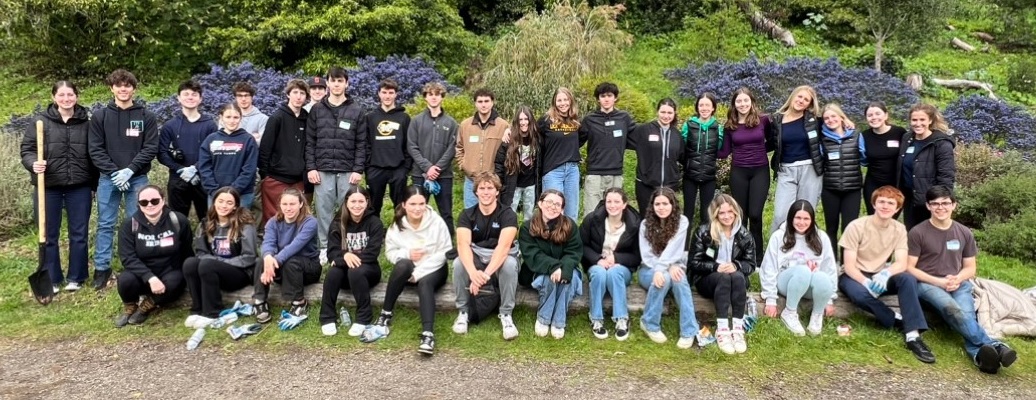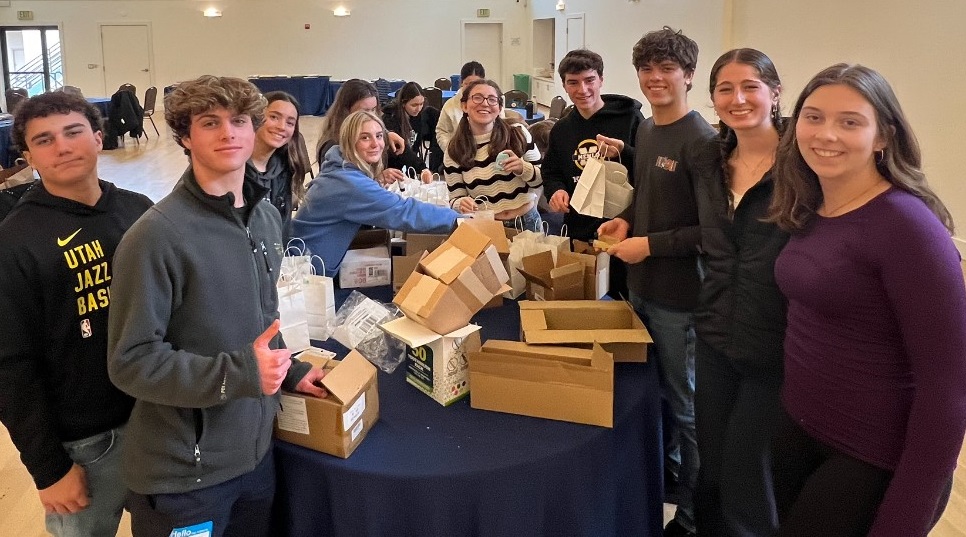Changing Minds, Changing Lives
From a young age, we are taught to have an open mind. I used to hear it all the time at school, from my friends, or when my parents wanted me to try something new. But I never understood what open mindedness really meant until my second year at the Federation’s Jewish Teen Foundation (JTF).
I knew the JTF would be a good experience. It’s an opportunity for teens with strong leadership qualities and a desire to help others to work together to make positive change in the world. Each year, JTF participants collaborate to award grants to values-aligned nonprofits. We study populations in need, reach consensus on a mission statement, raise awareness, then finally, raise the funds for the grants. Leadership skills, team building, public service — everything I was looking for in one program.

During my four years at JTF, I rose from Board Member to first JTF fellow. In that time, we raised over $270,000 for the marginalized populations we championed — victims of domestic violence, people with mental health challenges, those affected by addiction, and the formerly incarcerated. Our impact was impressive, but what surprised me most was how much I grew personally from the process. The JTF exposed me to a multitude of perspectives and issues I didn’t know I was missing.
One of my most eye-opening experiences happened in my second year. Due to COVID-19, I missed the retreat where we picked our group to support. In my absence, the board chose the formerly incarcerated, a decision that alarmed me. My initial thoughts were a mix of doubts and fears: “Why would we choose to help criminals? Do they even deserve our time and money? Aren't prisoners bad?” Quite frankly, I was prejudiced, and I didn’t even know it. But with the retreat over and consensus reached, I had no choice but to carry on and begin my research.
As I worked, my perspective began to change. Reading, having discussions and listening to various speakers — including one who spent 40 years in the prison system — I realized that my bias against incarcerated individuals left no room for their redemption. What I learned was that people exiting prison — many with significant prior trauma, no family, friends, or money — are tossed out of a system without the skills to successfully reintegrate into society. On top of that, they face discrimination from employers, neighbors, and anyone else who knows they have been in prison. This lack of acceptance, in addition to the many other challenges they face, means many of them go back to a life of crime and, often, back into the prison system. Through our work, I realized that the formerly incarcerated deserved help too.

My JTF journey taught me that keeping an open mind is not only a virtue, but also a powerful tool for personal growth and societal change. By challenging my preconceptions and embracing different perspectives, I discovered empathy, and grew in a meaningful way. As we navigate the complexities of our world, let us remember the transformative potential of an open mind — to break down barriers, foster understanding, and build a more inclusive and compassionate society for all.


